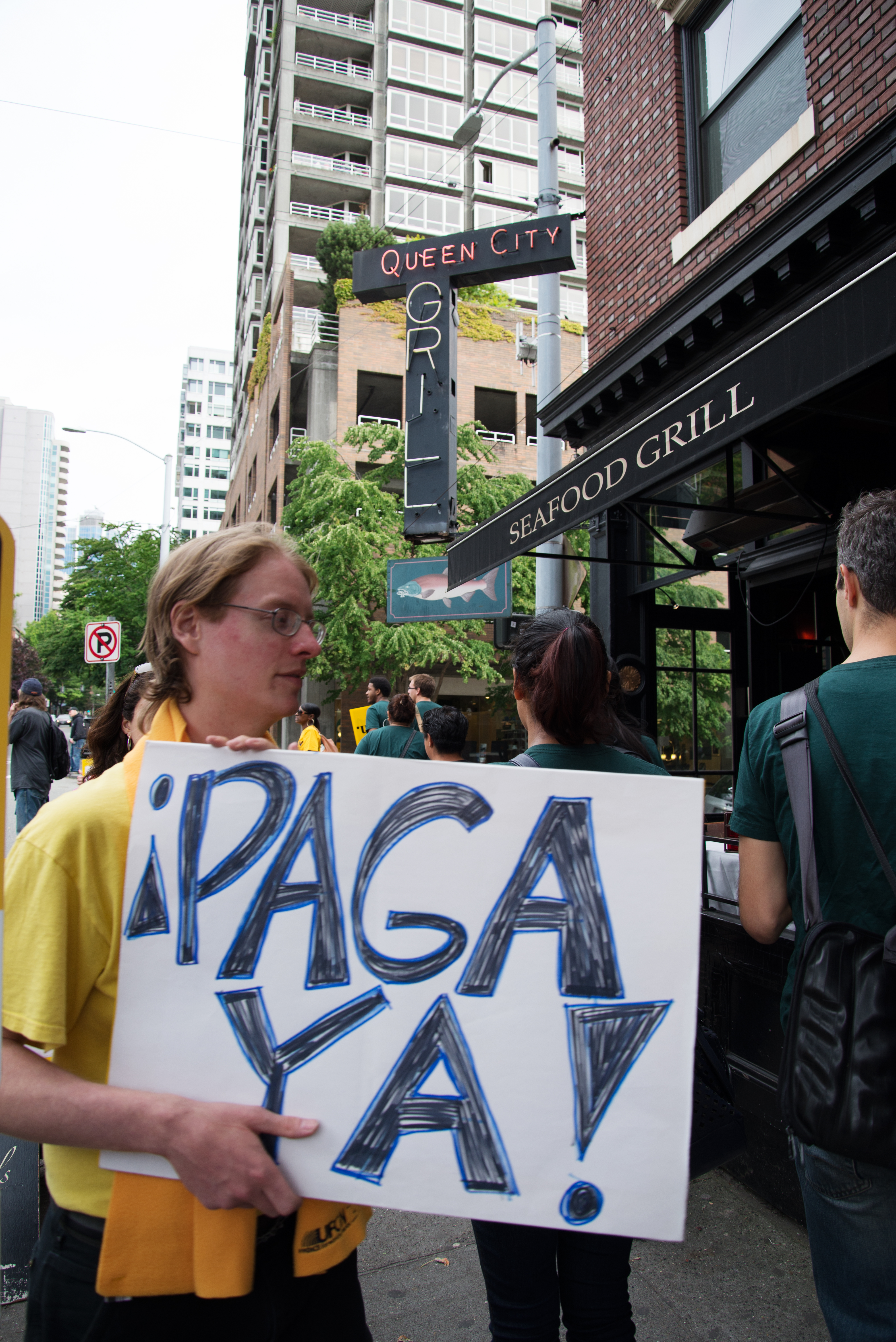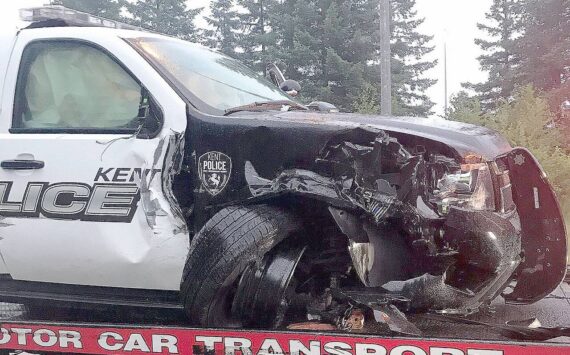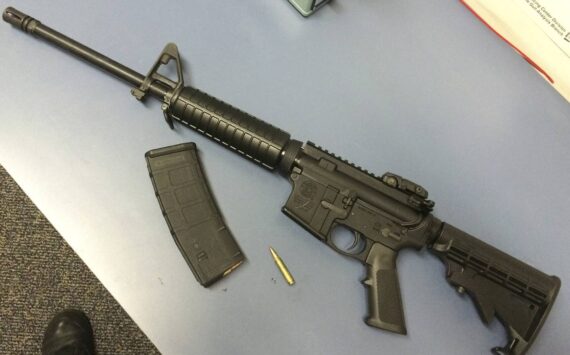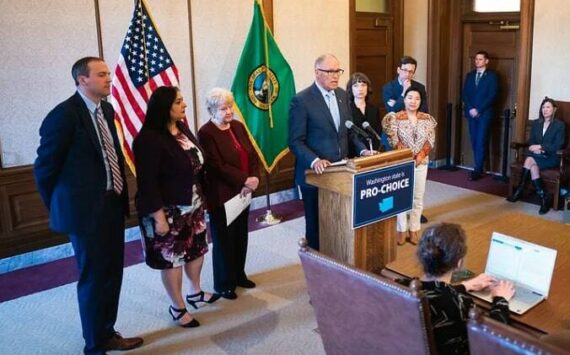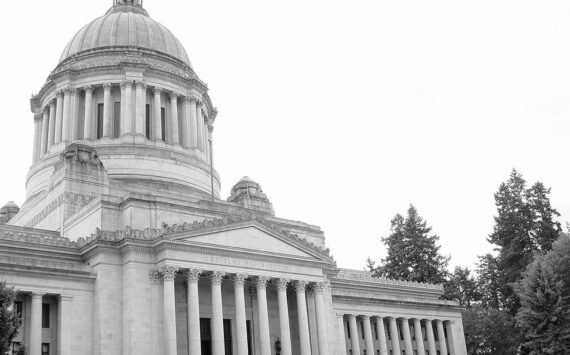A coalition led by statewide labor groups filed an initiative Monday to push the minimum wage to $13.50 an hour and allow workers to earn paid sick leave.
Representatives of unions, faith groups and advocacy organizations submitted the paperwork Monday morning, launching an effort that could be one of the biggest election battles this year.
As proposed, the minimum hourly wage would climb to $11 in 2017, $11.50 in 2018, $12 in 2019 and $13.50 in 2020. The measure would not prevent cities or counties from paying a higher wage – as is already the case in Seattle and Tacoma.
The measure also requires workers be allowed to earn one hour of paid leave for every 40 hours they work. Employees could use the leave to care for themselves if they get sick or a family member who is ill.
Supporters of the initiative contend a healthy and better paid workforce will benefit the state’s economy without triggering any job loss.
“The current minimum wage is unfair. Working families deserve to have a living wage,” said Sharon Kitchel, a 73-year-old home care worker from Olympia.
Among those on hand Monday was Jane Teske, a registered nurse who works in the newborn intensive care unit at Providence Regional Medical Center in Everett. She’s a member of the United Food and Commercial Workers Union Local 21 that represents the nurses.
Although she has sick leave benefits, she said she and co-workers are not encouraged to take it.
And while she has a good wage, she knows thousands of workers in the state do not.
“I’m fighting for those other people,” Teske said.
Washington’s current minimum wage is $9.47 an hour and is unchanged from 2015. Voters last considered the minimum wage in 1998. That year they passed Initiative 688 to provide annual cost-of-living adjustments based on increases in the federal Consumer Price Index. That index did not rise in 2015, hence the rate did not change.
For many years, Washington has had the nation’s highest minimum wage.
But that changed Jan. 1 when the rate climbed to $10 an hour in California and Massachusetts, $9.75 in Alaska and $9.60 in Connecticut, Rhode Island and Vermont, according to the National Conference of State Legislatures.
To qualify for the November ballot, the coalition will need to collect and turn in 246,372 valid signatures of registered Washington voters by July 8.
